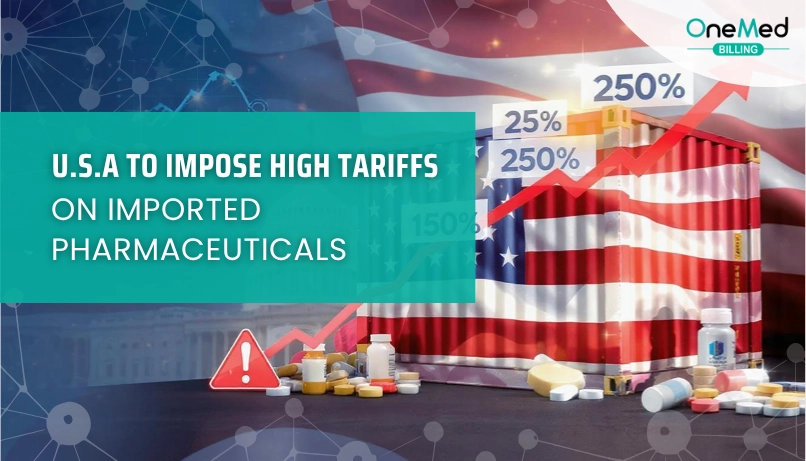U.S. to Impose High Tariffs on Imported Pharmaceuticals
- August 9, 2025
Source: Reuters Report on U.S. Pharma Tariffs, August 2025; FDA Data on U.S. Drug Imports
Washington, D.C. August 5, 2025 - President Donald Trump has announced a new trade policy targeting pharmaceutical imports, beginning with modest tariffs and potentially escalating to 150–250% over the next 18 months. The move is intended to encourage domestic drug manufacturing and reduce U.S. reliance on foreign suppliers.
Speaking at the White House, Trump framed the initiative as both a national security and economic priority:
“We will bring back pharmaceutical manufacturing jobs, ensure a reliable drug supply, and end America’s dependence on countries that do not have our best interests in mind.”
Tariff Details and Timeline
According to Reuters, the plan will begin with small tariffs in late 2025, followed by gradual increases that could reach triple-digit levels by 2027. The policy will cover a wide range of finished drugs and active pharmaceutical ingredients (APIs).
Administration officials noted that exemptions may be granted for drugs deemed critical to patient care where no viable U.S. alternatives exist.
Potential Impact on Prices and Supply
Industry analysts project mixed outcomes:
- Domestic Manufacturing Boost: Companies may expand or reshore production, creating more U.S. jobs.
- Higher Consumer Prices: In the short term, imported drug costs are expected to rise, affecting both patients and healthcare providers.
- Supply Chain Risks: The FDA reports that over 70% of APIs used in U.S. drugs come from overseas, meaning sourcing shifts could strain availability.
Global Trade Reactions
International trade partners in Europe and Asia have voiced concerns, with some warning of possible retaliatory tariffs on U.S. exports. Pharmaceutical companies, which operate across complex global supply chains, are urging the administration to reconsider.
The Pharmaceutical Research and Manufacturers of America (PhRMA) released a statement acknowledging the goal of stronger U.S. production but warning that tariffs could “undermine patient access to affordable medications” unless paired with significant domestic investment.
What’s Next
The proposal is expected to face legal and political challenges in the coming months. Congress will review related legislation in the fall, while healthcare advocacy groups are preparing campaigns to demand drug price protections to offset potential cost increases for patients.


